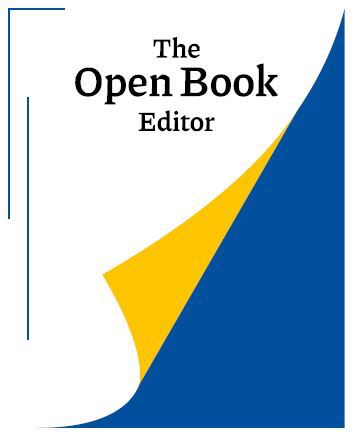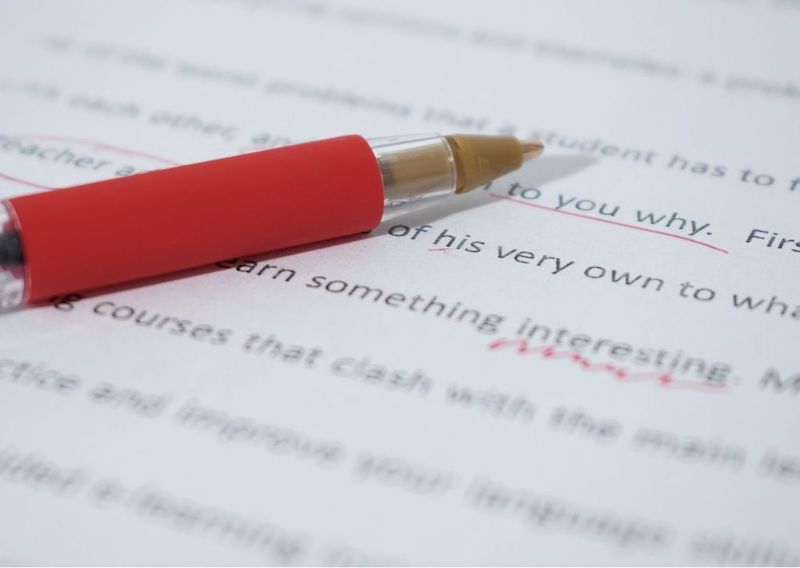At last, you have finally written those exciting last words on your manuscript, The End. You have planned, outlined, and put thousands of words on the page—not to mention the many hours you have spent agonising and second-guessing yourself—but you did it. You wrote a complete book! Now, before you contact literary agents or research self-publishing, stop, pat yourself on the back, then turn your attention to the next step in the writing process: editing your fiction or non-fiction book.
You may be wondering why you need to worry about editing your book. After all, you have done your part and written it; shouldn’t editing be left to the expertise of literary agents and publishers? Not necessarily. Editing is a vital stage in the creation of any successful book and, as a writer, you are expected to take an active role in the process. If you are self-publishing, it is up to you to ensure the book is ready for readers, and if you are seeking a traditional agent, you need to provide a polished manuscript to be in a chance of receiving representation. So, read on for three reasons why editing is important for the success of your fiction or non-fiction book.
1. Your first draft is rarely what gets published
In his book On Writing, Stephen King points to the first draft of any manuscript as the worst you will usually write. Of course, there are varying levels of how bad the first draft of any fiction or non-fiction book can be. Some writers tweak and revise as they go, while others write without pause from beginning to end. The point is, your first draft is probably nowhere near what it will be in its final, published form. And you know what? That is perfectly okay! If greats like Stephen King and Ernest Hemingway can admit to penning not-so-great first drafts, then you are in fine company. Remember, Hemingway edited and rewrote the ending to A Farewell to Arms a whopping 39 times, and it was well worth it in the end, wouldn’t you agree?
2. Editing is important to deal with overarching issues

When you are in the throes of writing a manuscript, it is easy to get caught up in the details of the story. It is completely natural to focus the microscope on one small part at a time. In fact, it is often necessary to get a scene or a chapter written without constantly going over it and making changes. But this focus means it can be hard to identify any wider plot holes, organisational issues, and spotty paragraph structure.
When you edit, you step back and look at the work as a whole, which allows you to notice bigger, overarching problems with your manuscript. Editing is important because it is much more than proofreading. It should tackle the thread running through your entire narrative and help you create a more cohesive and ‘readable’ piece of work.
Bear in mind that editing is not quite the same thing as proofreading. When you proofread, you are on the lookout for ‘smaller’ errors, such as grammar and misspelt or misused words. Learn about the different types of editing here.
3. Editing helps you to be objective
A major problem for many writers is objectivity when it comes to their work. Your book is your baby, and it’s difficult to know what to rewrite, rearrange, or leave out altogether. There is a reason the phrase “kill your darlings” is so popular in the writing community; as a writer, you must learn to do just that. One way to be objective is to set your manuscript aside to ‘rest’ a few months before you jump into the editing process. A mini-holiday from your work will allow you to come back with fresh eyes and approach it as if it is someone else’s book.
Of course, no matter what, you will always be a little biased. Ultimately, the best way to get a clear sense of what changes you need to make is to find other people to read your work. You can do this for free by joining a local writers’ organisation or doing a manuscript exchange with a fellow author you meet in an online group. The day in and day out process of writing can make it hard to identify areas for improvement, and someone who has not been through that same experience with your work will be able to offer you a much-needed objective point of view.

Enlist the help of a professional
It is completely normal to feel a tad overwhelmed by the editing process, but remember you do not have to embark on this journey alone. A capable and knowledgeable editor can provide invaluable expertise on how to polish your manuscript to give it the perfect shine. Contact The Open Book Editor to find out more about the professional services we offer. Each manuscript is unique, and we can’t wait to help you mould your special book into the best version of itself!


